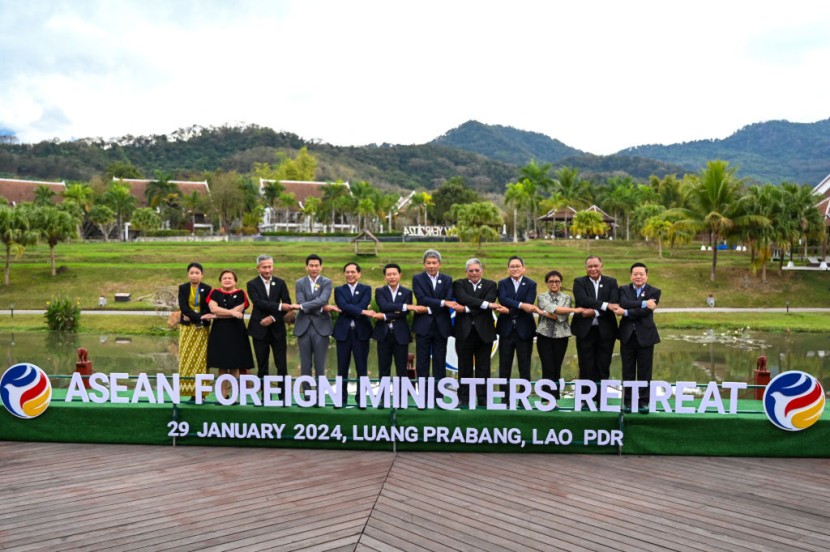Foreign ministers of the Association of Southeast Asian Nations (ASEAN) gathered at a meeting retreat at Luang Prabang, Laos on Monday (Jan. 29), agreeing on sending humanitarian assistance to Myanmar, the first time the bloc decided to intervene in the country since a military takeover created a political crisis in February 2021.
The Thai delegation revealed that the humanitarian aid would include medicines and medical and food supplies. All ASEAN members have agreed to push forward the supplies via the 2,000-kilometer Thai-Myanmar border.
Thai Deputy Prime Minister Pranpree Bahiddhanukara, who also holds the country's foreign ministry cabinet portfolio, told reporters that he and relevant Thai authorities were due to visit the border town of Mae Sot to seek an appropriate checkpoint to establish under the ASEAN Coordinating Center for Humanitarian Assistance (AHA).
"It is a good sign that Myanmar expresses its will to support and welcome ASEAN in setting up the AHA," he said, adding that humanitarian aid was expected to be sent to Myanmar by late February.
Laotian Deputy Prime Minister Saleumxay Kommasith also told a news conference that Myanmar had sent a senior civilian Foreign Ministry official, the first time the country has sent a representative to a high-level meeting of the bloc in more than two years.
ASEAN Deals with Myanmar Problem
ASEAN has rejected the participation of military leaders in its meetings and asked Myanmar's regime to send nonpolitical representatives like bureaucrats, but the junta refused to do so.
"This time, we felt a bit optimistic that the engagement may work, although we realized that the situation in Myanmar cannot be solved overnight," Kommasith said. "It's a light at the end of the tunnel."
However, ASEAN member-states still insisted that Myanmar should make an effort to reach its "five-point consensus," which aimed to restore peace agreed upon in April 2021 between ASEAN leaders and Myanmar's military junta.
The consensus called for the immediate cessation of violence, the creation of constructive dialogue among all parties concerned, the sending of an ASEAN special envoy to facilitate peace talks, the provision of humanitarian aid, and the sending of a special envoy to meet all parties concerned in Myanmar.
Laos earlier sent veteran diplomat Alounkeo Kittikhoun as a special envoy to meet with Myanmar's junta leadership in early January. He was also delegated as ASEAN's special envoy during Monday's meeting.
"The arrival of Mr. Alounkeo in Myanmar in early January and the presence of Myanmar representatives in this [ASEAN ministerial meeting] are good signs for ASEAN to seek a peaceful solution for Myanmar," Thammasat University Institute of East Asian Studies deputy director Dulyapak Preecharush told Nikkei Asia.

ASEAN Foreign Ministers Also Talk About China
Meanwhile, the Associated Press reported that some of the ASEAN members having maritime claims over the South China Sea, particularly the Philippines, Malaysia, Vietnam, and Brunei, also used the meeting as a way to deal with China's virtual claim of the waters.
While the ASEAN meeting was underway, Philippine President Ferdinand Marcos Jr. would be traveling to Hanoi to also discuss the ongoing tensions in the South China Sea as Manila is looking to bolster its ASEAN diplomacy to counter Chinese aggression.








